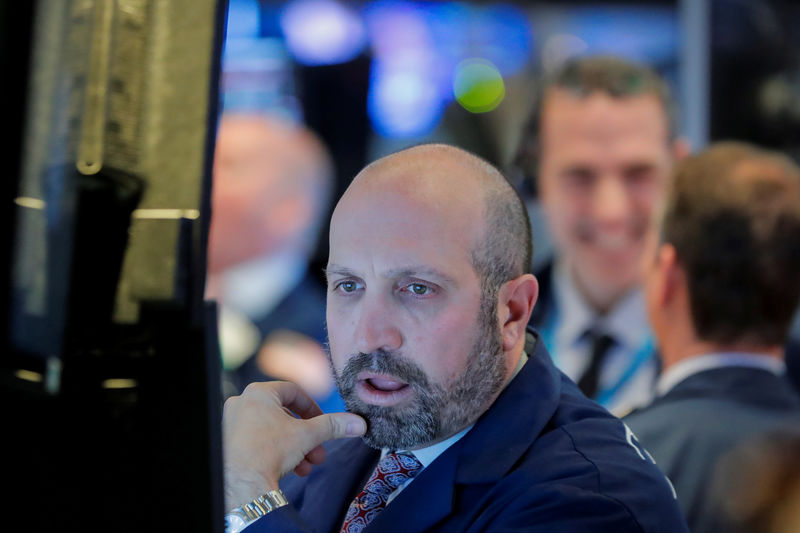* Dow Jones Industrial Average, S&P 500 up 0.1%
* MSCI world stocks index drops to two week low
* Europe equities head for fourth day of losses
* Oil markets steadies after heavy tumble
* Graphic: 2020 asset performance http://tmsnrt.rs/2yaDPgn
* Graphic: World FX rates in 2020 http://tmsnrt.rs/2egbfVh
By Matt Scuffham and Marc Jones
NEW YORK/LONDON, Oct 22 (Reuters) - Shares on Thursday slipped globally to a two-week low and oil steadied after another heavy fall, as the global surge in COVID-19 cases and fractious U.S. stimulus talks kept financial markets cautious.
Europe has seen coronavirus cases surge to a record high, with Spain becoming the first Western European country to exceed 1 million infections and France, Britain and Italy all seeing recent record increases.
In the United States, nearly two-thirds of states were in a danger zone of coronavirus outbreaks and six, including election battleground Wisconsin, reported a record one-day increase in COVID-19 deaths on Wednesday. traders digesting a drop in weekly jobless claims, leading U.S. stock indexes were slightly higher in early trade on hopes a fresh U.S. coronavirus relief package could be agreed.
The Dow Jones Industrial Average .DJI rose 20.08 points, or 0.07% to 28,230.90. The S&P 500 .SPX was up 2.94 points, or 0.09%, at 3,438.50, while the Nasdaq Composite .IXIC gained 42.28 points, or 0.37%, to 11,526.98 at the opening bell.
President Donald Trump accused rival Democrats on Wednesday of being unwilling to craft an acceptable compromise on fresh stimulus, following reports of progress earlier in the day. House Speaker Nancy Pelosi said negotiators were making progress and that legislation could be hammered out "pretty soon." noise from COVID-19 virus cases accelerating in Germany, reaching new highs in Spain and France and a worsening situation in the United States is finally too loud to ignore by the markets," said Sebastien Galy, macro strategist at Nordea Asset Management.
Disappointing German consumer morale data meant it was the first dip of the week for the high-flying euro EUR= while Turkey's lira TRY= went tumbling again as its central bank baulked at hiking interest rates. .EU /FRX market caution also ushered sensitive Italian government debt yields higher though there was also roaring demand for a 30-year bond sale there and an early drift back into ultra-safe German Bunds didn't last past lunchtime.
"Some governments assumed the worst was over ... but now the invisible enemy is hitting even harder and I am worried about the fragile economic recovery," said Rabobank strategist Piotr Matys.
In the currency markets, the dollar was a modest 0.1% higher against the yen at 104.65 JPY= , while the euro EUR= dipped 0.3% to $1.1820.
But against a basket of major peers the dollar =USD appeared relatively unaffected by setbacks to stimulus talks, steadying after touching a seven-week low to trade slightly higher at 92.736.
Overnight, MSCI's broadest index of Asia-Pacific shares outside Japan .MIAPJ0000PUS had slipped 0.3%, while the Nikkei .N225 closed 0.7% lower. .T
The yield on benchmark U.S. 10-year Treasury notes US10YT=RR ticked down to 0.8092%, from a U.S. close of 0.816% on Wednesday.
In commodity markets, oil prices steadied after sharp losses on Wednesday, when higher U.S. gasoline inventories pointed to deteriorating fuel demand again. EIA/S
U.S. West Texas Intermediate (WTI) crude CLc1 futures hovered near $40 a barrel and Brent crude LCOc1 futures were 0.5% higher at $41.19.
Gold eased as the dollar edged up, with spot gold XAU= down 0.4% at 1,916 per ounce. GOL/
<^^^^^^^^^^^^^^^^^^^^^^^^^^^^^^^^^^^^^^^^^^^^^^^^^^^^^^^^^^^ Global assets
http://tmsnrt.rs/2jvdmXl Global currencies vs. dollar
http://tmsnrt.rs/2egbfVh Emerging markets
http://tmsnrt.rs/2ihRugV MSCI All Country Wolrd Index Market Cap
http://tmsnrt.rs/2EmTD6j Emerging market currencies being split by U.S. election
https://tmsnrt.rs/3iY7a4i Coronavirus vs financial markets
https://tmsnrt.rs/300KB8r
^^^^^^^^^^^^^^^^^^^^^^^^^^^^^^^^^^^^^^^^^^^^^^^^^^^^^^^^^^^> (Editing by Catherine Evans and Steve Orlofsky)
